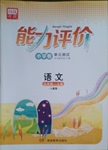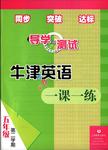题目内容
At a meeting, a well-known speaker lifted up a bill of 20 dollars before starting his speech.
Facing 200 people, he asked, “Who wants this 20-dollar bill?” A great many hands were put up. Then he continued to say, “I intended to give it to any one of you, but allow me to do a thing before giving it to you.” Suddenly he crumpled (揉)it into a round mass. Then he asked, “Who wants it? ” Still some hands were lifted up.
He asked again, “Well, how could it be if I do it like this?” he threw the bill onto the ground, stepped on it and twisted it. As he picked it up, the bill had become not only dirty but wrinkled.
“Who still wants it?” Still a few people put up their hands.
“My dear friends, you have had a meaningful class. No matter how I treated this bill, you still want it, because it is worth 20 dollars. On your life road, you may be knocked down(击垮) or even broken into pieces by your determination or unfavorable situations. We may feel ourselves worth nothing, but, my darling, remember that whatever happens in the future, you should never lose your value(价值) in the God’s heart. You’re particular ---- never forget it.”
【小题1】How many times did the speaker ask the people whether they wanted the bill?
| A.Once | B.Twice | C.Three times | D.Four times |
| A.broken | B.having small lines or folds in it |
| C.flat | D.having holes on it |
| A.tell the audience that one should never lose one’s own value |
| B.tell the audience that God values money most |
| C.test if some of the audience were extremely interested in money |
| D.play a trick on the audience |
| A.How money can make people crazy. |
| B.How to avoid being knocked down in one’s life. |
| C.How to keep one’s value of life. |
| D.How to give a meaningful class |
【小题1】C
【小题2】B
【小题3】A
【小题4】C
解析试题分析:本文通过一个人三次把一张20元的纸币揉压,变脏等,告诉人们一个道理:要坚持自己的价值观。
【小题1】C 细节题。根据文章2,4段“Who wants this 20-dollar bill?” 和“Who still wants it?”以及“Who wants it? 可知文章中一共问了3次,故C项正确。
【小题2】B 推理题。根据文章第三段he threw the bill onto the ground, stepped on it and twisted it. As he picked it up, the bill had become not only dirty but wrinkled.可知他把纸币扔掉了地上用脚踩,说明纸币上有很多的皱纹和印迹,故该词是指B项内容。
【小题3】A 细节题。根据文章最后3行We may feel ourselves worth nothing, but, my darling, remember that whatever happens in the future, you should never lose your value(价值) in the God’s heart. You’re particular ---- never forget it.”说明我们在任何情况下都要坚持自己的理想和价值观。这才是作者的真正意图,故A正确。
【小题4】C 推理题。在文章最后一段We may feel ourselves worth nothing, but, my darling, remember that whatever happens in the future, you should never lose your value(价值) in the God’s heart. You’re particular ---- never forget it.”,作者提 及了要坚持自己的价值观的重要性,那么接下来最可能的就是任何保持着自己的价值观的具体做法。故C项正确。
考点:考查人生百态类短文阅读
点评:本文通过一个人三次把一张20元的纸币揉压,变脏等,告诉人们一个道理:要坚持自己的价值观。本文主要考查推理题。在解题时要立足已知,推断未知。立足现在,猜测未来。不能主观臆想,凭空想象,随意揣测,更不能以自己的观点代替作者的观点;要把握句、段之间的逻辑关系,了解语篇的结构。要体会文章的基调,揣摸作者的态度,摸准逻辑发展的方向,悟出作者的弦外之音。

 能力评价系列答案
能力评价系列答案 唐印文化课时测评系列答案
唐印文化课时测评系列答案 导学与测试系列答案
导学与测试系列答案On 26 May 1928, at a meeting in Amsterdam (阿姆斯特丹), the FIFA congress (国际足联) decided that a new competition open to all its members should be played. A year later in Barcelona it was agreed that Uruguay(乌拉圭), the strongest football team at the period of time., should celebrate 100 years of independence(独立) by hosting the first World Cup the following year. 
Only 13 nations came to the opening of the games and nine from South America. All games were played in three stadiums in Montevideo(蒙得维的亚) and, as expected, the South American countries were stronger, although the European teams did not bring shame.
Some 100,000 fans came for the final on 30 July between Argentina(阿根廷)and Uruguay. The FIFA president and brains(主要领导人)behind the World Cup, presented the trophy(奖杯)to winning captain and football’s greatest tournament was born.
After a pre-match row(争吵)over which ball to use for the final, it is believed the Argentine ball was used in one half and the Uruguayan ball in the other.
【小题1】When was the first World Cup played?
| A.1928. | B.1929. | C.1930. | D.1931. |
| A.Most of the teams came from South America. |
| B.The South American teams were stronger. |
| C.All the matches were played in European countries |
| D.The European teams did not play badly. |
| A.The history of football |
| B.The history of the World Cup |
| C.The FIFA |
| D.The first World Cup |
In the early 1950s, researchers found that people scored lower on intelligence tests if they spoke more than one language. Research in the sixties found the opposite. Bilingual people scored higher than monolinguals, people who speak only one language. So which is it?
Researchers presented their newest studies last month at a meeting of the American Association for the Advancement of Science. The latest evidence shows that being bilingual does not necessarily make people smarter. But researcher Ellen Bialystok says it probably does make you better at certain skills.
Ellen Bialystok said, “Imagine driving down the highway. There’re many things that could capture your attention and you really need to be able to monitor all of them. Why would bilingualism make you any better at that?”
And the answer, she says, is that bilingual people are often better at controlling their attention — a function called the executive control system.
Ms. Bialystok is a psychology professor at York University in Toronto, Canada. She says the best method to measure the executive control system is called the Stroop Test. A person is shown words in different colors. The person has to ignore the word but say the color. The problem is that the words are all names of colors.
Ellen Bialystok said, “So you would have the word blue written in red, but you have to say red. But blue is so salient(显著的), it’s just lighting up all these circuits(电路) in your brain, and you really want to say blue. So you need a mechanism(机制) to override that so that you can say red. That’s the executive control system.”
Her work shows that bilingual people continually practice this function. They have to, because both languages are active in their brain at the same time. They need to suppress(抑制) one to be able to speak in the other.
This mental exercise might help in other ways, too. Researchers say bilingual children are better able to separate a word from its meaning, and more likely to have friends from different cultures. Bilingual adults are often four to five years later than others in developing dementia or Alzheimer’s disease.
1.What’s the best title of the text?
A. Bilingual People, Smarter
B. Monolingual People, Smarter
C. Bilingual People, Longer Lives
D. Bilingual People, Better at Some Skills
2.The underlined word “override” in Paragraph 6 probably means ____.
A. pay attention to B. take no notice of
C. take an interest in D. take care of
3.In the Stroop Test, supposing you have the word yellow written in white, you will have to say ____.
A. white B. yellow C. blue D. red
4.Which group of people can most likely pass the Stroop Test?
A. People who can speak only Chinese.
B. People who can speak only Japanese.
C. People who can speak more than one language.
D. People who can speak only English.
5.Which of the following statements is FALSE according to the text?
A. A bilingual child is better at separating a word from its meaning.
B. A bilingual child can more easily make friends with a foreign child.
C. Bilingual people are more able to monitor several things at the same time.
D. It’s not possible for bilingual people to develop Alzheimer’s disease.
 king a mistake. They said their finding was much more colorful than it should have been. They now say the light from our universe is closer to white. It is more like a milky or creamy white color.
king a mistake. They said their finding was much more colorful than it should have been. They now say the light from our universe is closer to white. It is more like a milky or creamy white color.  mber to each of the colors of the different star systems. Then they added the numbers together and found the average measurement. The scientists used this average to identify the color of the universe. They said it was a very pretty light green or turquoise color. They called it “cosmic (宇宙的) spectrum (光谱) green.” Many newspapers and television stations reported their finding.
mber to each of the colors of the different star systems. Then they added the numbers together and found the average measurement. The scientists used this average to identify the color of the universe. They said it was a very pretty light green or turquoise color. They called it “cosmic (宇宙的) spectrum (光谱) green.” Many newspapers and television stations reported their finding.  ists and color engineers attempted to reproduce the result. Mark Fairchild of the Rochester Institute of Technology in New York was the first person to identify a mistake. He discovered a mistake in the computer software program used by the Johns Hopkins scientists.
ists and color engineers attempted to reproduce the result. Mark Fairchild of the Rochester Institute of Technology in New York was the first person to identify a mistake. He discovered a mistake in the computer software program used by the Johns Hopkins scientists. On
26 May 1928, at a meeting in Amsterdam (阿姆斯特丹), the FIFA
congress (国际足联) decided that a new competition open to all its
members should be played. A year later in Barcelona it was agreed that Uruguay(乌拉圭), the strongest football team at the period of time., should celebrate
100 years of independence(独立) by hosting the first World Cup the following
year.
On
26 May 1928, at a meeting in Amsterdam (阿姆斯特丹), the FIFA
congress (国际足联) decided that a new competition open to all its
members should be played. A year later in Barcelona it was agreed that Uruguay(乌拉圭), the strongest football team at the period of time., should celebrate
100 years of independence(独立) by hosting the first World Cup the following
year.